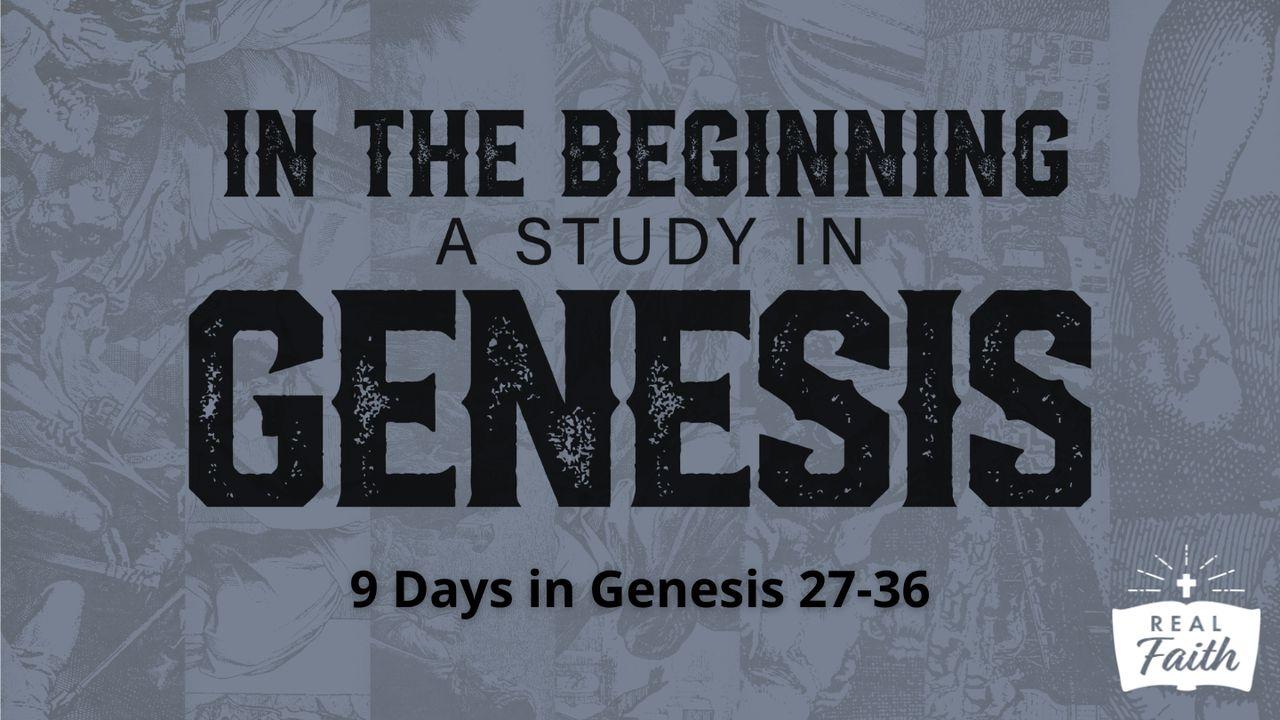In the Beginning: A Study in Genesis 27-36Sample

What Hope Does God Offer Assault Victims?
When he was nearly home after a 20-year absence, Israel (formerly Jacob) settled in Shechem. His decision proved as devastating as Lot’s decision to settle in Sodom earlier in Genesis, as he should have continued to Bethel as he was supposed to.
Eventually, Jacob fathered 13 children with four different women, two of whom were wives (the sisters Rachel and Leah) and two of whom were maidservants to the wives. At this point in his life, Jacob had 12 children, as his son Benjamin was not yet born to complete the 12 Tribes of Israel. Therefore, he had 11 sons and only one daughter, a young woman named Dinah, at this time.
Dinah went out to visit other women living in the area where her father had settled them. While she was out, the son of the man who ruled that area saw her. Whether he raped or seduced her is unclear, but the effect is, in essence, the same in that he defiled her and took her virginity dishonorably. Worse still, he was a pagan man who wanted to marry her. The scriptures discourage intermarriage between believers and unbelievers. In Genesis, Abraham was worried that Isaac would marry outside of the covenant, as Ishmael had. Even Esau’s intermarriage with the unbelieving Hittites was a source of great trouble. Jacob kept quiet about the defilement of his daughter until her brothers came home. The sons were understandably devastated, furious, and disgusted at the idea of letting their sister marry this detestable unbeliever. Dinah’s brothers then devised a plan to use the covenant of circumcision instituted by God with Abraham in Genesis 17 in a deceitful manner to avenge their sister’s defilement.
Theologically, the question begging to be answered is whether Jacob was right in rebuking his sons here, as well as in Genesis 49:5-7, or whether the brothers were correct in avenging their sister while their father sat idly. They all sinned. Every man in this story sins either by commission (by doing evil or intending to do evil) or omission (by sitting idly and doing nothing to defend the defiled young woman).
Therefore, in Jacob, we see yet another mini-fall, not unlike Adam, Noah, and Abraham. After entering into a covenant relationship with God and seeing God save his life by gracious mercy, Jacob responded in sin because of his unbelief. As is the case throughout Genesis, human sin served God’s purpose since the line of the covenant family is protected from intermarriage with the Shechemites because they were slaughtered by Simeon and Levi.
Thankfully, this family would produce Jesus Christ, who himself was abused and defiled. Throughout Scripture, some Hebrew and Greek words are used to explain sin in terms often translated into English as defilement, uncleanness, and filth. Some examples of the causes of defilement include sexual sins such as sexual assault, incest, adultery, prostitution, and bestiality. Places where defiling occurs can also become defiled, such as marriage beds.
The results of defilement are many. Some people respond by accepting their defiled condition as their unchangeable identity or by leading sinful lives defined by what has been done to them or by them rather than what Jesus has done for them. Others are so paralyzed by shame that they essentially shut down emotionally and live isolated lives so as not to become vulnerable or hurt again. And still, others seek to numb their pain with drugs, alcohol, sex, power, success, or whatever else enables them to either stop feeling or start feeling a measure of self-worth.
When we sin, we need to repent. When we are sinned against, we need to be cleansed. 1 John 1:7-9 says, “If we walk in the light, as he is in the light, we have fellowship with one another, and the blood of Jesus, his Son, purifies us from all sin." If we claim to be without sin, we deceive ourselves, and the truth is not in us. If we confess our sins, he is faithful and just and will forgive us our sins and purify us from all unrighteousness.’’
Sin has touched us all and retains life in the defiling darkness of shame, guilt, and isolation that denies our scars or labors to hide them. Conversely, cleansing comes through living an open and honest life that brings our defilement into the light for Jesus and trustworthy Christian friends to see so that they can be the agents of healing in our lives. It’s Jesus’ death on the cross that forgives our sins and cleanses the stains on our souls resulting from sins we have committed and those that have been committed against us. Because of His sacrifice for us, we can see ourselves by the righteousness Jesus gives us and not the defilement someone else has put on us.
Question:
Why is it important for victims of sexual assault to know that Jesus can take away any sense of defilement and cleanse them (1 John 1:7-9)?
Scripture
About this Plan

In this 9-day plan, you will study Genesis 27–36, focusing on God's faithfulness to sinful families that He uses for His glory. We hope you'll learn the importance of a good family structure, the benefits of patiently awaiting God's will, and the necessity of receiving God's blessing for your life to prosper.
More
We would like to thank Mark Driscoll for providing this plan. For more information, please visit: https://realfaith.com
Related Plans

Your Prayer Has Been Heard: How God Meets Us in Seasons of Weariness and Waiting

Hope in Creator’s Promises

Everyone Should Know - Thanksgiving Special

Lessons From Some Hidden Heroes in the Bible

What the Bible Says About Advent - 29 Days of Advent Meditations

Scriptures and Hymns to Grow Your Joy This Christmas

Adversity

When Heaven Touched Earth - a 7 Day Journey to Christmas

OVERCOME Lust WITH TRUST
